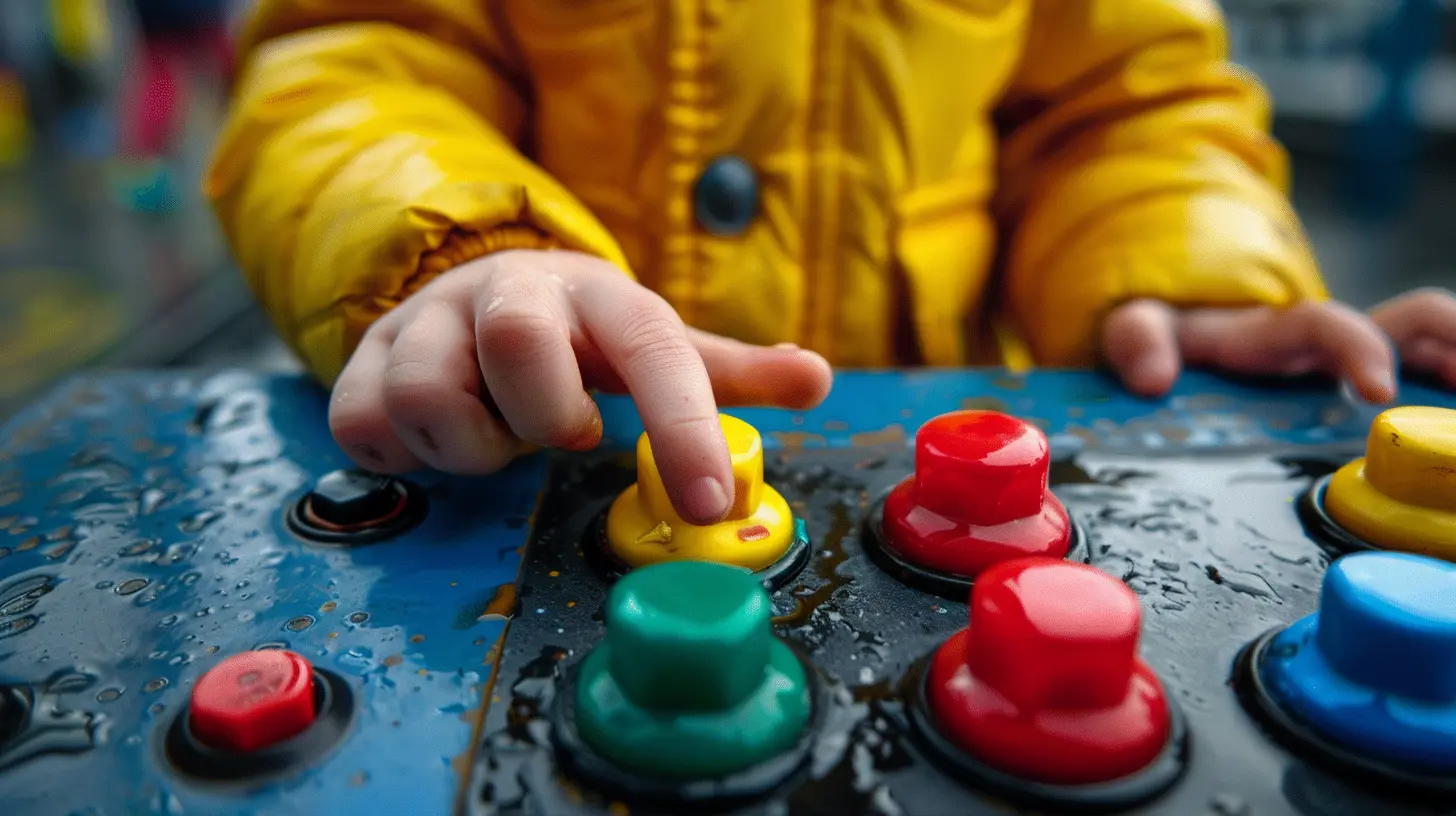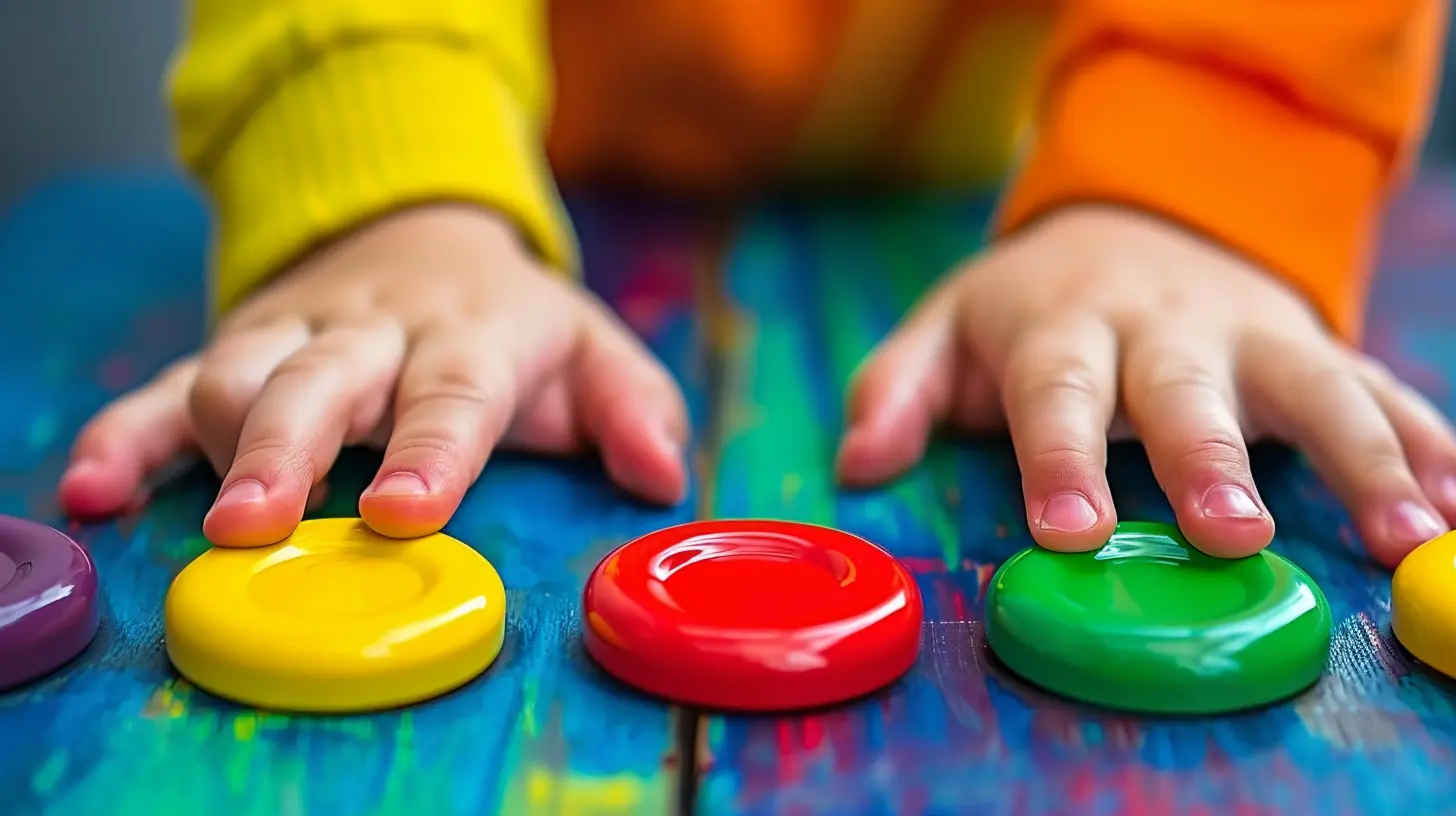When Kids Push Your Buttons: Staying Calm During Challenging Moments
9 May 2025
Parenting is one of the most rewarding jobs in the world, but let's be honest—it can also be one of the most frustrating. No matter how much we love our children, there are moments when they push our buttons, testing our patience in ways we never thought possible. Whether it's a toddler throwing a tantrum in the grocery store, a preschooler refusing to listen, or a teenager rolling their eyes for the hundredth time, staying calm can feel like a Herculean task.
But here’s the good news—you’re not alone, and there are ways to navigate these moments without losing your cool. In this article, we'll dive into practical strategies to help you remain calm, respond thoughtfully, and maintain a positive connection with your kids, even when they push you to your limits. 
Why Do Kids Push Our Buttons?
Before we dive into staying calm, it helps to understand why kids push our buttons in the first place. The truth is, they’re not doing it to make our lives miserable (even if it feels that way). Kids are wired to test boundaries—it's part of how they grow and learn.Here are a few common reasons why children exhibit challenging behaviors:
- Seeking Attention – Kids crave attention, even if it means acting out. When they feel ignored, they may misbehave just to get a reaction.
- Testing Limits – Children are naturally curious. They push boundaries to understand what’s acceptable and what’s not.
- Overwhelm & Frustration – Just like adults, kids can get overwhelmed. However, they lack the emotional maturity to express themselves, so their emotions often come out as tantrums or defiance.
- Hunger or Tiredness – A hungry, tired child is more likely to have meltdowns. (Let’s be honest, aren’t we all a little cranky when we’re running on empty?)
- Asserting Independence – As kids grow, they want to feel in control of their decisions. Sometimes, saying “no” is their way of asserting independence.
Now that we understand why kids act out, let’s talk about how to keep our cool when they do. 
1. Take a Deep Breath (Seriously, It Works!)
It sounds simple, but taking a deep breath can make a huge difference. When we’re triggered, our body goes into fight-or-flight mode, making it harder to think rationally. A deep breath gives your brain a moment to reset and prevents knee-jerk reactions.The next time you feel that familiar frustration rising, try this:
- Inhale deeply through your nose for four counts.
- Hold for four counts.
- Exhale slowly through your mouth for four counts.
This small pause can help you respond with calm rather than react with anger. 
2. Reframe the Situation
Instead of seeing your child as deliberately misbehaving, try shifting your perspective. Ask yourself:- Is my child struggling with something right now?
- Are they feeling overwhelmed or unheard?
- What need are they trying to express?
A shift in perspective can make all the difference. Instead of getting annoyed, you might find yourself feeling more compassionate and patient. 
3. Lower Your Voice Instead of Raising It
It’s tempting to yell when things escalate, but raising your voice often makes things worse. Ever notice how kids tune out when we start shouting? Instead, try doing the opposite—lower your voice.Speaking softly forces kids to stop and listen. It also models emotional regulation, teaching them how to stay calm in difficult moments.
4. Use Humor to Diffuse Tension
Laughter is a secret weapon in parenting. If you feel frustration creeping in, find a way to inject humor into the situation.For example:
- If your child refuses to put on their shoes, try putting them on your hands and saying, “Well, I guess this is how we wear shoes now!”
- If they’re whining nonstop, respond in a silly voice: “Oh no! The whine monster is here again! What should we do?”
Humor lightens the mood and helps shift the energy from conflict to connection.
5. Give Yourself a Timeout (Yes, You!)
Timeouts aren’t just for kids! When you feel your patience wearing thin, step away for a moment. Tell your child, “I need a minute to calm down so I can talk to you the right way.”Find a quiet space, take a few deep breaths, and reset before responding. It’s okay to take a break—parenting is hard work!
6. Validate Their Feelings (Even When They’re Being Difficult)
When kids are upset, the last thing they want is to be brushed off. Validating their feelings doesn't mean giving in—it means acknowledging their emotions.Try saying:
- “I see that you’re really frustrated right now.”
- “It looks like you had a tough day.”
- “I get that you’re upset. Let’s figure this out together.”
When children feel heard, they’re more likely to calm down and cooperate.
7. Set Clear Boundaries Without Losing Your Cool
It’s important to have boundaries, but how we enforce them matters. Instead of yelling, state rules calmly and with confidence.For example:
- Instead of “Stop running around the house!” → Try “We walk inside to stay safe.”
- Instead of “If you don’t pick up your toys, I’m throwing them away!” → Try “Toys need to go back in their spots so we can play again tomorrow.”
This keeps the message firm without escalating the situation.
8. Focus on Connection Over Control
When kids act out, they often need connection more than correction. Instead of immediately disciplining, take a moment to connect emotionally.A hug, eye contact, or even sitting down at their level can make a huge difference. When children feel emotionally connected, they’re less likely to push boundaries.
9. Practice Self-Care (You Can’t Pour from an Empty Cup)
Let’s be real—parenting is exhausting, and when we’re running on fumes, our patience disappears fast. Taking care of yourself isn’t selfish, it’s essential.Make time for things that recharge you:
- Go for a walk
- Read a book
- Listen to your favorite music
- Meditate or journal
- Ask for help when you need it
A well-rested, emotionally replenished parent is far better equipped to handle challenges with patience and calm.
10. Remind Yourself: This Too Shall Pass
When you’re in the thick of a meltdown, it feels like it will never end. But the truth is, it will. These tough parenting moments are just that—moments. They pass, and before you know it, you'll look back and realize how fast it all flew by.So next time your child pushes your buttons, take a deep breath, respond with love, and remember—you’re doing an amazing job.
Final Thoughts: You’ve Got This!
Parenting is a journey filled with ups and downs, but every challenge is an opportunity to grow. You won’t always get it right (none of us do), but showing up with love, patience, and a willingness to try again is what truly matters.The next time your child tests your patience, use these strategies to stay calm. With a little practice, you’ll find that keeping your cool not only helps you—it creates a home where both you and your child can thrive.
all images in this post were generated using AI tools
Category:
Parenting ChallengesAuthor:

Max Shaffer
Discussion
rate this article
5 comments
Renee McKnight
Buttons? More like keyboards!
May 19, 2025 at 3:27 PM

Max Shaffer
Great point! Sometimes it does feel like we're navigating a whole keyboard with our kids!
Colton Pacheco
Great tips! Staying calm in tough moments makes a world of difference. You've got this, parents!
May 14, 2025 at 3:57 PM

Max Shaffer
Thank you! Staying calm truly is key. I appreciate your support!
Ryder Hamilton
In the heat of challenging moments, remember: your calm sets the tone. Embrace patience and empathy, guiding your child through their emotions while nurturing your own response.
May 11, 2025 at 3:57 AM

Max Shaffer
Thank you for highlighting the importance of patience and empathy—our calm truly can make a significant difference in guiding our children through tough emotions.
Lyla Ward
Staying calm is tough but crucial.
May 10, 2025 at 2:43 AM

Max Shaffer
Absolutely! Staying calm sets a positive example for kids and helps diffuse tension.
Faelith McNeely
Thank you for this insightful article. It’s a great reminder that staying calm not only helps us, but also teaches our children emotional resilience.
May 9, 2025 at 2:55 AM

Max Shaffer
Thank you for your kind words! I'm glad you found the article helpful in promoting emotional resilience.
MORE POSTS

Responsive Feeding Practices in Attachment Parenting: Honoring Your Child’s Hunger Cues

Teaching Siblings to Work Together: A Guide for Parents

Resilience and Gratitude: How the Two Work Together in Raising Strong Kids

Culture and Potty Training: Approaches from Around the World

Creative Ways to Teach Your Preschooler About Sharing